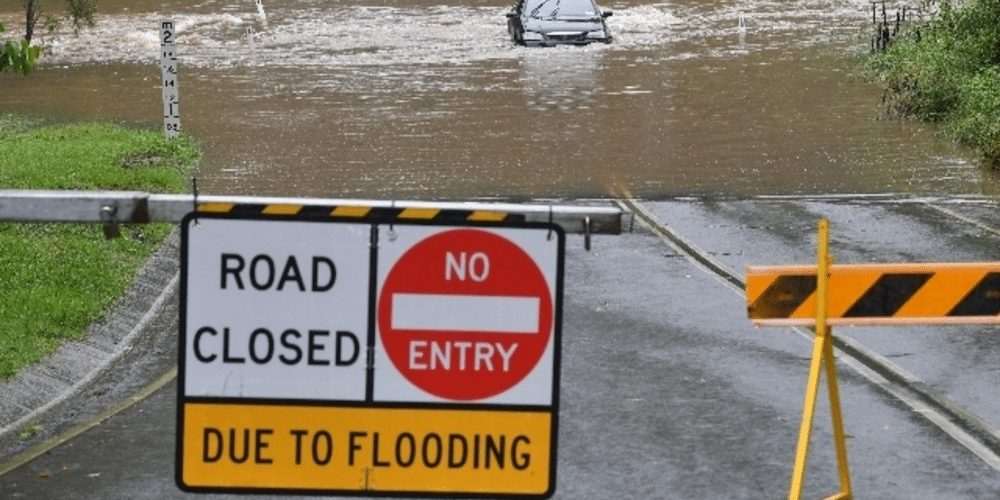In a move to cater the needs for Western consumers, Mulu Rainforest in Sarawak is being destroyed to make way for palm oil plantations, and this project is funded by Singapore’s United Overseas Bank (UOB).
This news came to light after a documentary titled “The Mulu Land Grab” by Bruno Manser Fonds, a Swiss NGO promoting forest conservation and the rights of indigenous peoples, was shared on their Facebook page.
For those who are not aware of this lush rainforest, it is actually part of the Gunung Mulu National Park and is home to some of the rarest species in the world. Due to its outstanding diversity of flora and founa, as well as its biological importance, the area surrounding Gunung Mulu has been declared a UNESCO World Heritage Site.
Apart from its amazing array of wildlife, the rainforest is also where indigenous Penan and Berawan people have lived for generations. For these communities, the forest is the basis of their livelihood and their main source of food.
“The reason why the forest is important to us and why we want to preserve it is because this our Penan way of living. Here is medicine, here is the sago tree, which is our food. The rattan is important for us to make handicraft for a living. If the forest is destroyed, it is difficult for us to continue our way of life and to find food in the forest. This is our wealth and possessions,” said Rosedy, a residence of the Penan village of Bateu Bungan.
Rapid clearance of the rainforest
Palm oil is the highest consumed vegetable oil in the world. With more companies and people stacking up their shelves with this oil, the global demand for it had increased dramatically over the years.
In fact, the production of this particular kind of oil has reached 70 million tonnes a year, and 85 per cent of it is produced in Indonesia and Malaysia.
As such, it is no surprise that the rainforests in Borneo had been disappearing rapidly in the recent decades. In Sarawak alone, the cultivation for palm oil has doubled in the past 10 years.
However, the latest clearance of land for palm oil plantations will cut-off an important wildlife corridor between the Mulu National Park and primary forests of Brunei. Looking on the documentary, one can see tracks of intact primary rainforests in Brunei, but across the border in Sarawak, things look completely different with empty lands ready to make way for palm oil plantations.
The culprit
In the documentary, it is revealed that the new palm oil plantation is established by a Malaysian palm oil company called Radiant Lagoon (RL). Despite concerns raised by these communities, the land clearance activities are still going on full swing and the native customary rights of the local people are not at all respected.
If that is not bad enough, the company also uses pesticides to clear the land, which can be potentially harmful to the workers and communities within the vicinity. One of the pesticides found in the plantation site is the Antracol by German manufacturer Bayer. This highly hazardous pesticide contains elements that may be damaging to unborn child, and is even banned by the European Union.
In 2008, RL obtained two leases over an area of 4,000 hectares from the Sarawak state government. At that time, Taib Mahmud was the Chief Minister of the state and the Minister for Planning and Resource Management, putting him in charge of the Land and Survey Department and also the Land Custody and Development Authority.
However, what is alarming is that, according to the research conducted by Bruno Mansor Fonds, the son of Taib Mahmud, Abu Bekir, was the Director of RL for nine years and was controlling the shareholder of the palm oil company. He resigned from his position in April 2018, one month before the Malaysia’s last general election.
Currently, the company record shows that Radiant Lagoon was sold to business tycoon Tan Sri Yee Ming Seng, the owner of Double Dynasty (DD), a massive logging and plantation company. It was reported that the palm oil from DD is used by major Western brands like Kellogg’s, Nestle, Mondelez, P&G and more.
When the leases were granted to RL, they were given at an extraordinarily favourable condition. Based on the records gathered by the NGO, the company has to only pay almost S$3700 per year to the Sarawak government, which is merely about S$0.80 per hectare per year.

As for the funding, it is coming from Singapore’s United Overseas Bank (UOB) where they have agreed to lend up to S$43.5 million to RL through its branch in Malaysia.
Plea from the Penan and Berawan communities
Looking at the speed of destruction, people of the indigenous groups are pleading to the company to stop destroying their lands.
Although they tried their best to defend their land by protesting and bringing in more villagers to form a blockage to stop the workers from chopping off the trees, but it went to no avail.
“I was very shocked. Now that I see the destruction of our land is getting worse. They already used to come to cut timber and destroy our sago palms and food resources. Now they come to take our trees and then even plant oil palms on our Penan land,” said Osen Tu’o, the long iman at Bateu Bungan.
He pleaded, “We ask for your support to stop palm oil plantations. Because right now, the oil palm company is coming to our land”.






